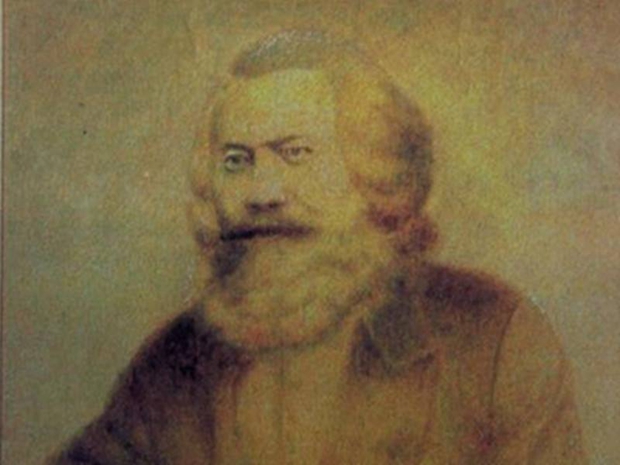Marx's birth bicentenary: Xi leads the way
- By Ritu Raj Subedi
 0 Comment(s)
0 Comment(s) Print
Print E-mail China.org.cn, May 15, 2018
E-mail China.org.cn, May 15, 2018

Karl Marx, father of communism, continues to inspire people to create an egalitarian society almost 135 years after he left this mortal world. On the occasion of his birth bicentenary on May 5, 2018 his followers from across the globe remembered him with veneration and discussed his great thoughts on solving the economic crisis triggered by freewheeling corporate-led capitalism in the 21st century.
Marx gave the world the most rational yet explosive theory – scientific socialism – to end the gross inequalities and injustice in society. He lent a voice to the voiceless that the proletariats are capable of destroying the exploitative capitalist system to usher in an equal, democratic and ecologically-friendly world.
At the heart of Marxism lies the epochal call to bring an end to all forms of exploitation of humans by humans. Despite some setbacks, Marxism guides the communists, progressives and nationalists to liberate their nations from the yoke of domestic reactionaries and colonial rulers.
Dialectical materialism, class struggle and dictatorship of the proletariat form the basis of classical Marxism. The Communist Manifesto and Das Capital diagnose the ills of capitalism that emerged in the 19th century and offered intellectual weaponry for the working class to engineer the ultimate socialist revolution.
Nonetheless, towards the end of his eventful life, Marx had begun to pin faith on peaceful means of change – elections and parliament – for the transition from capitalism to socialism.
Marxist philosophy gained enormous traction with the onset of the economic crisis in 2008 that debunked the myth that neoliberalism is the final stage of the ideological evolution of mankind. The people's growing curiosity about Marxism reaffirms its relevance and verity in the 21st century.
"Like a spectacular sunrise, the Marxist theory illuminated the path of humanity's exploration of the rule of history, and humanity's search for their own liberation," said Chinese President Xi Jinping, who heads the world's largest party, the Communist Party of China (CPC).
Xi said Marx is the greatest thinker of modern times and has hugely impacted China.
"The CPC has combined the fundamental principles of Marxism with the reality of Chinese revolution and construction, transforming the Chinese nation from ‘the sick man of East Asia' to one who has stood up, by uniting and leading the people through long-term struggle," CPC General Secretary Xi told a grand gathering recently organized in Beijing to mark Marx's birth anniversary.
The CPC has officially adopted the Xi Jinping Thought, the Chinese version of Marxism that embraces its core tenets based on the Chinese socio-economic and cultural conditions to transform it into an advanced, prosperous and egalitarian nation by the middle of this century.
Unlike the Soviet Union, China successfully experimented with Marxism for its liberation and socialist reconstruction. Chairman Mao Zedong and paramount leader Deng Xiaoping uniquely orchestrated political and economic revolution in China after China was humiliated and vitiated by the centuries-long colonial rule and foreign aggression.
Xi has stood for fair and just globalization, democratization of international institutions and rules, ecological preservation of the planet and protection of the rights and sovereignty of small nations.
In Xi Jinping Thought, one can trace both the revolutionary spirit of Mao and the reformist zeal of Deng. Today President Xi leads China into a new era of socialist building that seeks to spread the dividends of socialism beyond its national border.
As Xi said, Marxism is an open-ended scientific theory and has the ability to reinvent itself as per the historical necessity. "There is no sole, unchangeable pattern for socialism," Xi said, urging the Party officials to read Marxism to understand history and society.
Meanwhile, showing its ideological and emotional affinity with Marx's birthplace in Trier in the western part of Germany, China donated a larger than life statue of Marx on his bicentennial. The 5.5-meter tall bronze statue, made by Chinese artist Wu Weishan, was unveiled in front of Marx's family home in Trier amidst a special function, coinciding with his birthday on May 5.
In Nepal where the people have shown an unprecedented craze for Marxism, Marx's birthday was observed with a variety of functions. The Karl Marx Bicentennial Celebrations Committee is conducting orientation classes for 10,000 youths on Marxism to spread his ideas to the grassroots as the country, under the majority communist government, has thrown itself into socialist reconstruction following the promulgation of the new constitution and the historic three-tier elections last year.
Ritu Raj Subedi is an associate editor of The Rising Nepal.
Opinion articles reflect the views of their authors, not necessarily those of China.org.cn.






Go to Forum >>0 Comment(s)